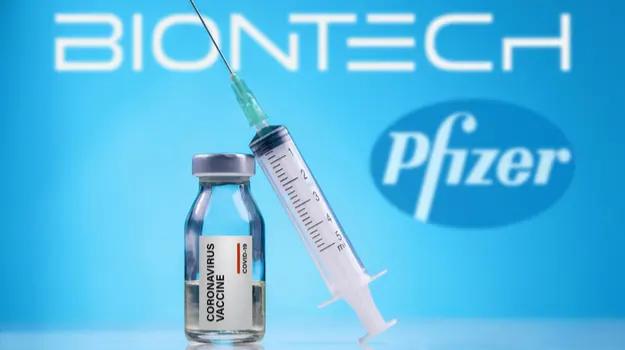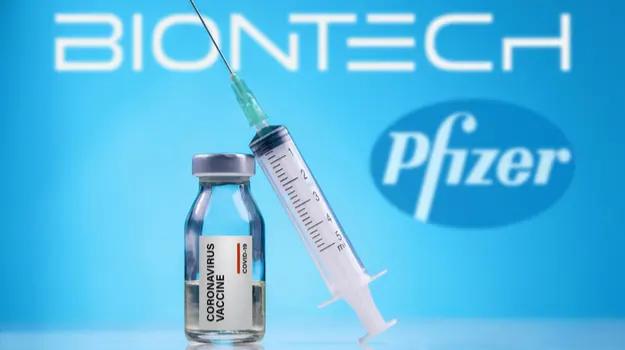Pfizer and BioNTech are evaluating ways to improve upon the influenza B response.

Today, Pfizer announced results from its phase 3 clinical trial for its investigational COVID-19 influenza combination vaccine it has partnered on with BioNTech, as well as results from a separate phase 2 influenza vaccine trial.
The phase 3 combination vaccine study measured 2 primary immunogenicity objectives (immunogenicity against SARS-CoV-2 as well as immunogenicity against influenza A and B), of which 1 was met. Compared to a licensed influenza vaccine, the Pfizer tIRV formulation was noteworthy for eliciting robust influenza A responses, including a continued trend of higher influenza A responses vs a licensed influenza vaccine, while it showed lower geometric mean titers and seroconversion against the influenza B strain.
“We are encouraged by the robust immunogenicity we saw with our combination vaccine against influenza A, which was similar to what we had seen for our initial quadrivalent influenza vaccine where we saw superior relative vaccine efficacy against a comparator flu vaccine,” Annaliesa Anderson, PhD, senior vice president and head, Vaccine Research and Development at Pfizer, said in a statement.
Phase 3 Study Parameters and Takeaways
This was a randomized, observer-blinded study that included over 8000 adults between the ages of 18 through 64 years old. Investigators evaluated the safety, tolerability, and immunogenicity of a single dose combination vaccine candidate against influenza and COVID-19.
The vaccine candidate was compared to a licensed influenza vaccine and the companies’ licensed COVID-19 vaccine given at the same visit. The primary immunogenicity objectives were to demonstrate that the antibody responses to influenza and to SARS-CoV-2 elicited by the combination vaccine candidate were non-inferior to the standard of care.
In addition, to the aforementioned results against influenza, the formulation demonstrated comparable responses against SARS-CoV-2 vs the companies’ licensed COVID-19 vaccine.
No safety signals with the combination vaccine have been identified in an ongoing safety data review. Participants who received a licensed influenza and COVID-19 vaccine with coadministration continued to elicit robust immune responses against both influenza and COVID-19 with no safety signals identified to date.
What You Need to Know
The combination vaccine demonstrated strong immunogenicity against influenza A, similar to Pfizer’s previous quadrivalent influenza vaccine.
While the vaccine performed well against influenza A, it elicited lower geometric mean titers and seroconversion against the influenza B strain.
The combination vaccine’s immunogenicity against SARS-CoV-2 was comparable to the licensed COVID-19 vaccine, with no significant safety concerns identified in the ongoing review.
Pfizer Influenza Vaccine Phase 2 Study
In a separate phase 2 trial, Pfizer evaluated its trivalent influenza mRNA standalone vaccine candidate which demonstrated robust immunogenicity in individuals 18-64 years of age. They enrolled 450 participants who were randomized to receive investigational mRNA-based influenza vaccines or influenza vaccines approved by the FDA.
Next Steps
After the reporting of the top-line data results the companies are evaluating adjustments to improve immune responses against influenza B the investigational vaccine and will discuss next steps with health authorities weighing their next move.
“We are committed to developing vaccines that will reduce the burden of respiratory diseases and believe that combination vaccines are the most efficient way to do this. Today’s results provide insight and direction towards achieving this goal, and we remain optimistic about our combination COVID-19 and influenza program, for which we are evaluating the next steps,” said Pfizer’s Anderson, PhD.
Reference
1.Pfizer and BioNTech Provide Update on mRNA-based Combination Vaccine Program Against Influenza and COVID-19 in Individuals 18-64 Years of Age. Pfizer news statement. August 16, 2024. Accessed August 16, 2024.
https://www.pfizer.com/news/press-release/press-release-detail/pfizer-and-biontech-provide-update-mrna-based-combination








